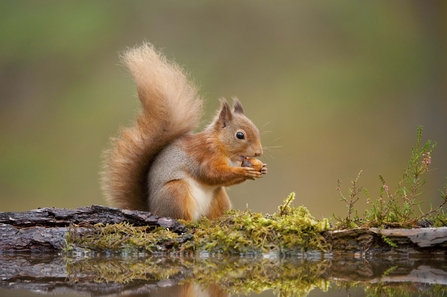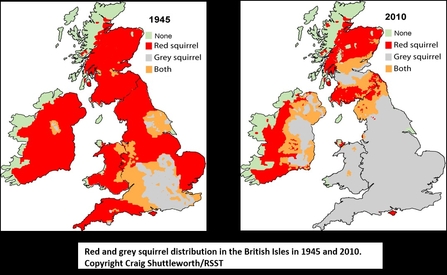**If you'd like to volunteer check our list of local red squirrel conservation groups seeking volunteers www.redsquirrelsunited.org.uk/volunteering **
With the first of this year’s surveys of the endangered mammal due to start on 1st March, a new approach to the conservation of this charismatic species puts volunteers at the forefront of efforts to halt their decline.
Volunteers are needed to help protect red squirrels, as part of community-based teams gathering information about squirrel populations. Tasks include speedy reporting of grey squirrels moving into areas which are currently strongholds for red squirrels. The larger, invasive non-native greys are a major reason for the reds’ decline.
Volunteers will work with partner organisations in their local area, logging squirrel sightings, monitoring feeders for reds, setting up camera traps to film their behavior, controlling grey squirrel populations in key areas, and teaching the public and schoolchildren about our treasured native species, characterized by Beatrix Potter’s ‘Squirrel Nutkin’.
Data about sightings will contribute to the work of Red Squirrels United, a UK-wide network set up to protect the reds, and to the Saving Scotland’s Red Squirrels project. The initiatives are supported by Heritage Lottery Fund (HLF across the UK) and LIFE (in England, Wales and Northern Ireland). LIFE is the EU’s financial instrument supporting environmental, nature conservation and climate action projects throughout the EU.


